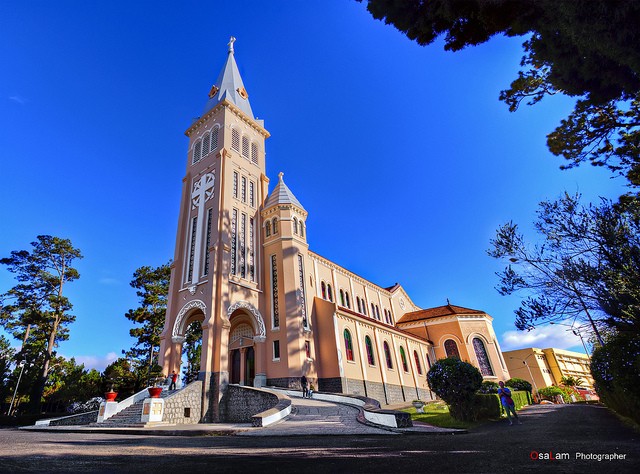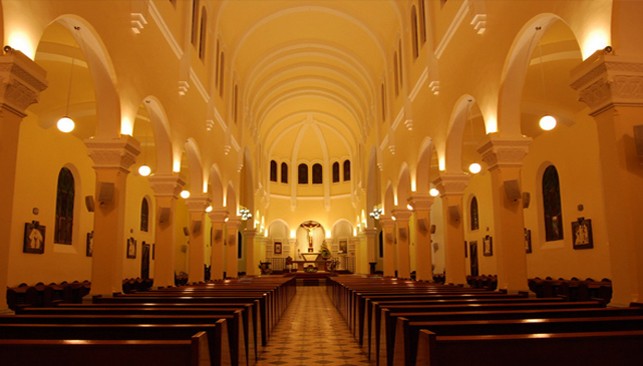(VOVworld) - In Vietnam, every church is different. In Da Lat, the St. Nicolas Cathedral, sometimes called the Rooster Church and Domaine de Maria Cathedral, with own unique architectural styles, are popular tourist destinations.

The Rooster Church in Da Lat |
St. Nicolas Cathedral is also known as the Rooster Church because a copper rooster is perched atop its bell tower. This is one of Da Lat’s oldest landmarks. Built between 1931 and 1942 by the French as a parish church, it is has eclectic style on a model called "Romanesque".
The cathedral is 65 meters long and 14 meters wide. Its bell tower, visible from across the city, is 47 meters high. A statue of Our Lady stands in front of the entrance to the cathedral facing Langbiang Mountain. Inside, the church is divided into three sections: a nave and two aisles. The walls are decorated with 70 stained glass windows. Atop the bell tower is a copper rooster, a symbol of France but also a symbol of repentance. The copper rooster rotates with the wind, so by looking at the rooster, people can tell the direction of the wind. Nguyen Thi Hong is a tourist from Dong Nai: “When I visit the Cathedral, I love its classic beauty and harmony. Its unique architectural style amplifies the charm of Da Lat”.

Inside the Rooster Church in Da Lat |
Another famous church in Hanoi is the Domain de Maria, also known as Mai Anh Church. Covering more than 12h on a hill near the city center, the Church complex embraces the European style of the 17th century and mingles with local elements like the typical sloping roof of the highlands. It has no steeple. The monastery is surrounded by a beautiful garden which gives it a romantic touch. Nguyen Quang Hoa is from Ho Chi Minh City: “I love the climate in Da Lat as well as its friendly people. I have visited the Domaine de Maria Church several times, but every time I get a different feeling. I feel as if time stops.”

Mai Anh Church in Da Lat
|
Painted pink, the Church brightens in the sunlight distinguishing it from other architectural structures in Da Lat.